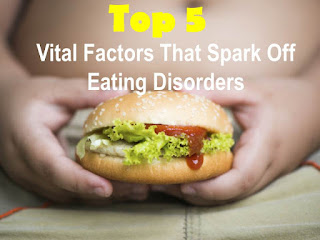 Any guesses for the quintessential oppos in committing an offence? Eating disorders and substance abuse most often pair up to form a similar intimacy. Researches and eating disorder information indicate nearly 50% people indulged with eating disorders come up against alcohol or drug abuse. Also, more than 35% of individuals with substance abuse take part in some types of dysfunctional eating behaviour.
Any guesses for the quintessential oppos in committing an offence? Eating disorders and substance abuse most often pair up to form a similar intimacy. Researches and eating disorder information indicate nearly 50% people indulged with eating disorders come up against alcohol or drug abuse. Also, more than 35% of individuals with substance abuse take part in some types of dysfunctional eating behaviour.These arrangements can constitute some typical forms of a mutual sponger. They generate a vicious cycle leading inexorably to a worsening of the situation filled with distraught emotions, mental agony, drugs, alcohol and weight loss.
Read:- 7 Cardinal Signs That Rule the World of an Alcohol Addict
What Causes Eating Disorders?
Eating disorders, drug abuse and alcohol addiction frequently share a lot of identical inherent issues. That’s why they often have an impact on people simultaneously. These key issues include:
1. Impulsive actions
Research studies show that being impulsive can stoke up eating disorders and concurrent substance abuse. When people fail to put the brakes on actions that are dangerous to their health, career, finances, behaviours and relationships the trait becomes impulsive.
That’s what causes eating disorders. Facets like binge eating disorder and substance abuse that leave people with an uncontrollable urge towards indulging in food or substance with dire consequences are mainly fueled by impulse.
2. Overlapping genetics
A relevant eating disorder information captured from a journal published in 2013 on alcohol and drugs revealed that a few of the selfsame genes that make a person susceptible to developing an addiction can likewise make them prone to disordered eating.
The data also mention that the genes which amplify the risk of alcohol abuse also expose people to jeopardy with behaviours such as binging, purging and laxative misuse.
3. Self-medicating
Substance abuse and eating disorders are regularly in the grip of self-medication which is a significant deterrent to eating disorder recovery.
Often addicted people have impaired coping aptitudes while having latent issues like trauma and mental health disorders. They take recourse to alcohol and drugs to fend for themselves. By the same token, behaviours like binging, purging, over-exercising can fill in a comparative purpose.
Read- Warning Signs Of Pain Medication Abuse
4. Challenging situations
Research indicates troublesome family circumstances, for instance, having parents who abuse on alcohol and drugs, pose threats of eating disorders, substance abuse and mental health maladies like depression, anxiety and post-traumatic stress disorder.
Abysmal interpersonal relationships, unforeseeable irritability and affection problems like a decrepit, offensive and an excessively entrapped parent won’t most likely engender an eating disorder help to recovery.
5. Mental health problems
Numerous studies exhibit that eating disorders and substance abuse co-exist with kindred and repressed psychiatric indispositions, particularly mood and personality swings.
Regardless of the diagnosis completion status of mental health disorders, people still resort to alcohol and drug abuse or screw up eating tendencies to assuage a few of their symptoms.
With the help of useful eating disorder resources like articles on eating disorder treatment options, recovery tools, support groups and beyond, it’s possible to capacitate people battling with eating disorders to engage and bring in a temporary relief.